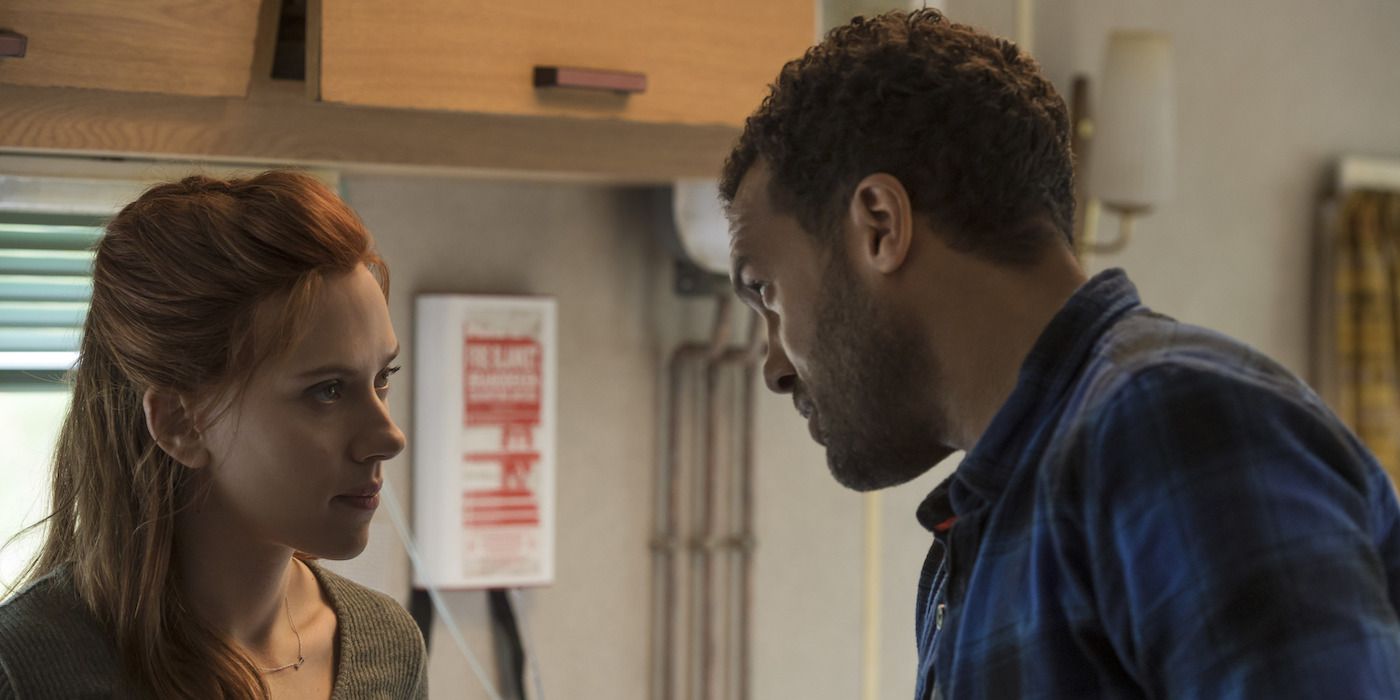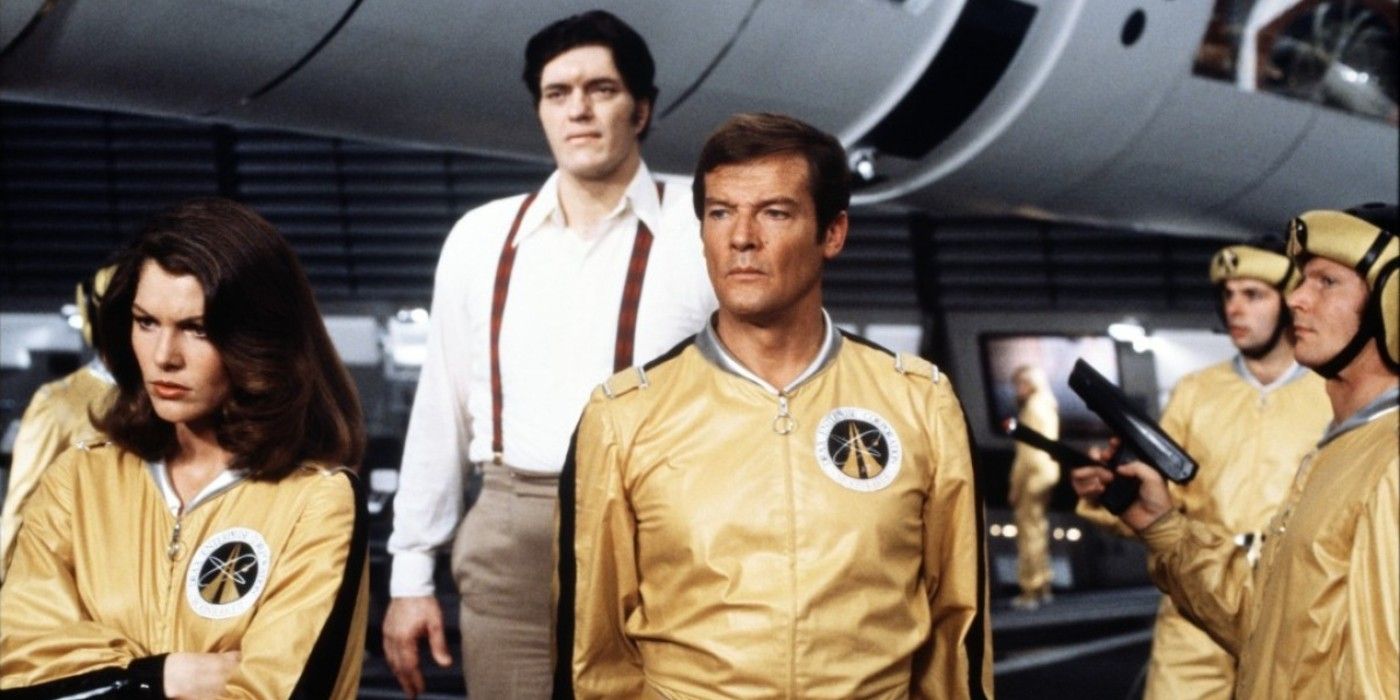Editor's note: The following contains spoilers for Black Widow.
In WandaVision, Wanda "Scarlet Witch" Maximoff (Elizabeth Olsen) processes her trauma through pop culture, forcing an entire town to exist in a hyper-controlled sitcom version of life where every ending is a happy one. Her reason for using sitcoms as a kind of forced escape? In Episode 8 of the miniseries, we find out it's because of a familial love of the television form. Young Wanda (Michaela Russell) and her family would watch bootleg DVDs of classic American TV comedies to escape their casually traumatic lives in war-torn Sokovia. They brought her comfort during the worst of times, showing an appealing alternate reality far, far away from the miseries that made up her life. It makes sense for Wanda to return to this form in her last-ditch, desperate attempt at forced comfort. The metatextual sitcom forms honor her character.
Black Widow, with a story co-written by WandaVision creator Jac Schaeffer, features a small but similar moment of pop culture escapism for its hero, Natasha "Black Widow" Romanoff (Scarlett Johansson). And while this moment bears little influence on the rest of the film's globe-trotting spy thriller plot, it attempts to reveal something new, endearing, and profound about its character. Unfortunately, the choice of media drops the ball completely, revealing a lack of understanding as to why Wanda's particular pop culture loves tracked so well for her character, and failing the character of Natasha.
On paper, being a super-spy/assassin/Avenger seems like it might be fun. Black Widow wants to remind us that, in practice, it's anything but. Uprooting any sense of peace for episodes of violence, becoming brainwashed by corrupt government forces as a child, watching your newly found family erode into a titular Civil War — these are just some of the traumas collected by Natasha, a series of festering scabs she's trying to find any sense of healing from. She needs to make stillness wherever she can get it. And in one sequence, we watch her routine. In her isolated trailer in the middle of nowhere, Natasha pulls out her laptop and watches a piece of pop culture that comforts her. She's watched this piece of pop culture so much that she says the dialogue as it happens, a genuine smile crossing her face.
This piece of pop culture is Moonraker, a 1979 spy film starring Roger Moore as James Bond. Like every other Bond film, it's full of heightened adventure, melodramatic supervillains, explosive technology, and a somewhat morally corrupt hero at the center. It is, in other words, a fictional depiction of Natasha's everyday life since she was a child. A life, again, full of trauma and misery and betrayal and abuse.
Why on earth, for her brief moment of pop culture escape, would this traumatized super-spy watch a film about a traumatized super-spy? Does anyone in the MCU know who Natasha is? Does anyone care?
Am I being dramatic? Moore's Bond films are notoriously silly, the apex of the franchise's relationship with out-and-out camp. And of these Moore films, Moonraker just might be the silliest, the least tethered to any kind of emotional reality. It sent a beloved action hero into space well before la familia. It turns the realities of being a globe-trotting spy and assassin into a literal farce.
Still, and maybe even because of this silliness, it feels callous, even mean to make Natasha watch Moonraker for comfort and escapism. Think about the worst thing that's ever happened to you. Now think about watching a film that turns this visceral trauma into buoyant, fluffy clap-trap. How would you feel? I would feel insulted, triggered, shocked. It would be the last thing I would turn on, let alone watch enough to memorize its dialogue. What if Wanda, instead of turning to I Love Lucy and the like to escape from her daily pains of war-torn, Western-imperialism-benefitting aggression, watched something like Red Dawn, Rambo: Last Blood, or Chuck Norris' oeuvre; films that are explicitly interested in turning her horrific life into consumable entertainment for others to find amusing and unbelievable? How would this, in any way, function as a constructive, comforting piece of escapism? Black Widow's arc involves Natasha trying to run away from her past, to make amends for her sins committed as a super-spy. For her to dive headfirst into a piece of fiction about a super-spy as a means of self-care feels insidiously apathetic.
Maybe I'm being dramatic. Maybe Natasha watches this film specifically because it turns her life into a live-action cartoon; maybe she finds that cathartic in some way. Maybe it's weird to care this much about a small Black Widow moment that lasts less than a minute on screen. But a person's life is nothing but a series of small moments. A film aims to represent these small moments, to make patterns and statements out of them, to turn chaos into sense, much like Wanda Maximoff attempts to do with her sitcom prison. In this one choice, the storytellers behind Black Widow show they don't know what statement they're making about their title character, which only kickstarts a troubling pattern for the rest of the grasping film.
Can Wanda lend Natasha some of her DVDs in the sequel?



